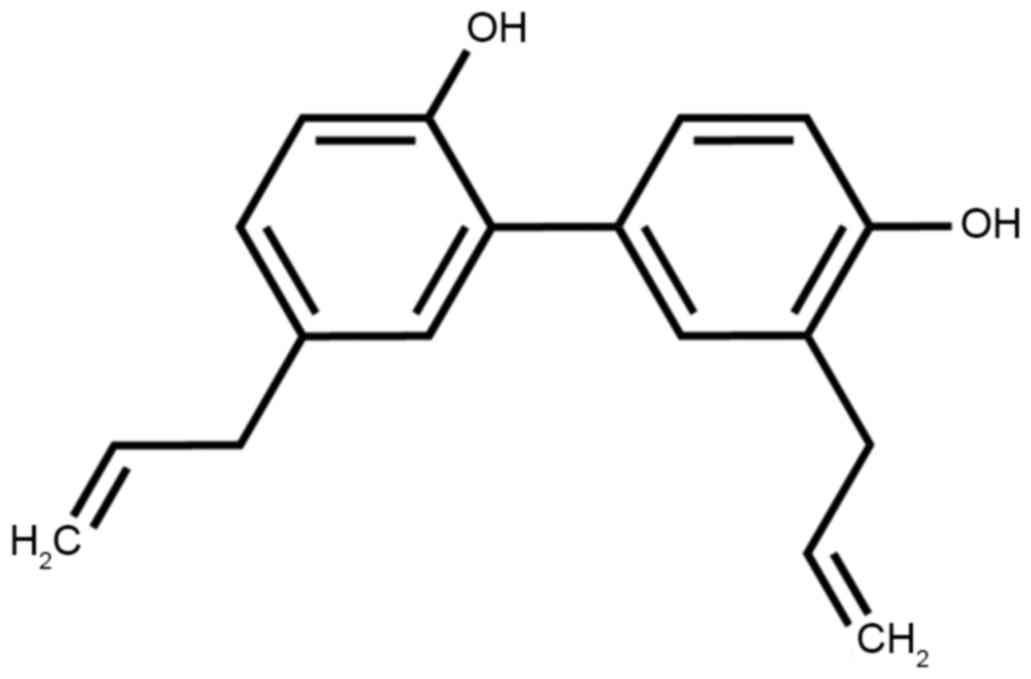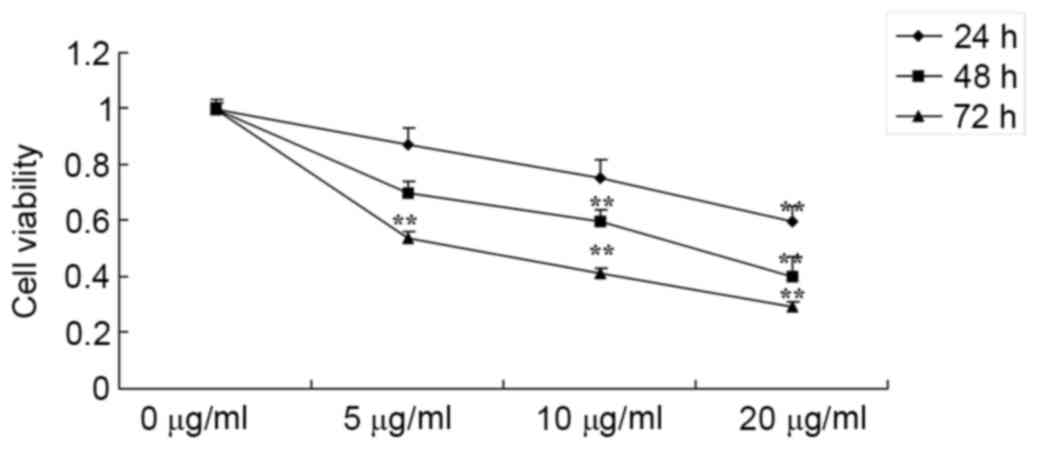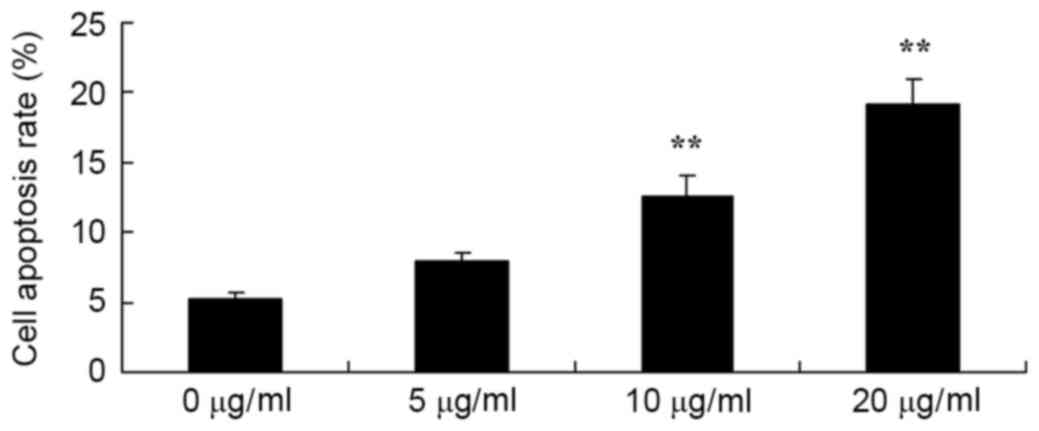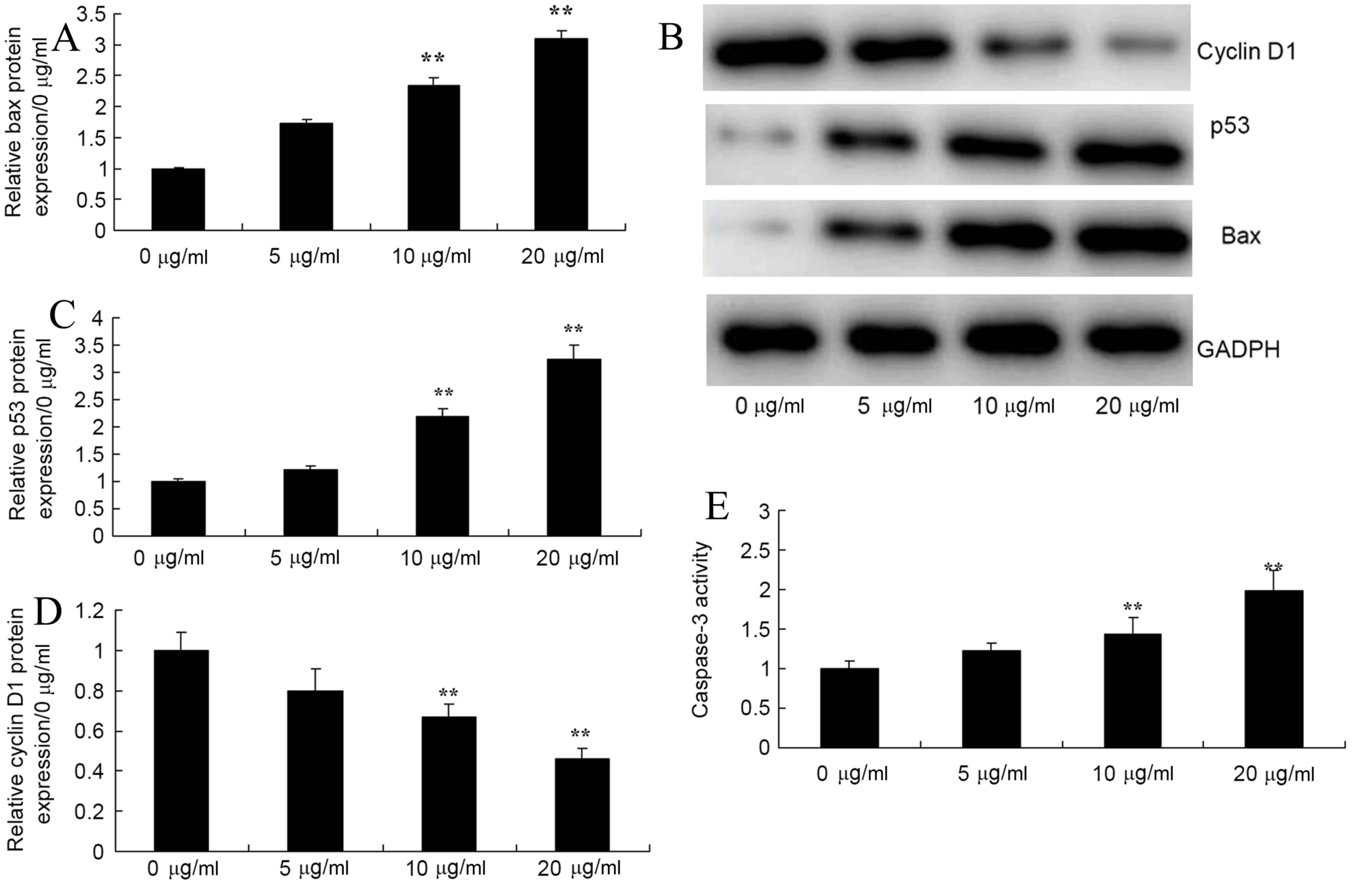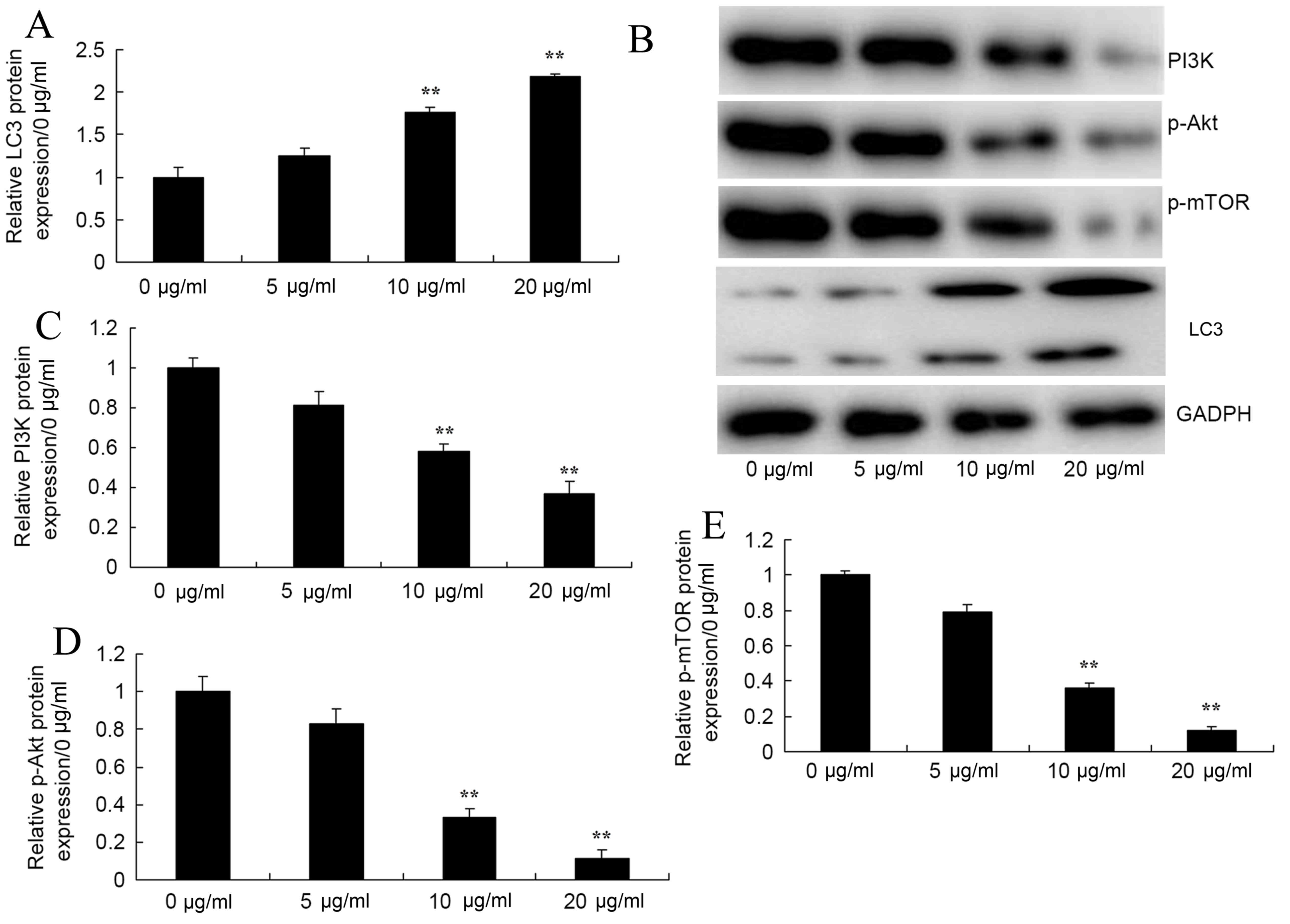|
1
|
Nataraj V, Batra A, Rastogi S, Khan SA,
Sharma MC, Vishnubhatla S and Bakhshi S: Developing a prognostic
model for patients with localized osteosarcoma treated with uniform
chemotherapy protocol without high dose methotrexate: A
single-center experience of 237 patients. J Surg Oncol.
112:662–668. 2015. View Article : Google Scholar : PubMed/NCBI
|
|
2
|
Tai BC, Machin D, White I and Gebski V;
EOI (The European Osteosarcoma Intergroup), : Competing risks
analysis of patients with osteosarcoma: A comparison of four
different approaches. Stat Med. 20:661–684. 2001. View Article : Google Scholar : PubMed/NCBI
|
|
3
|
London CA, Gardner HL, Mathie T, Stingle
N, Portela R, Pennell ML, Clifford CA, Rosenberg MP, Vail DM,
Williams LE, et al: Impact of toceranib/piroxicam/cyclophosphamide
maintenance therapy on outcome of dogs with appendicular
osteosarcoma following amputation and carboplatin chemotherapy: A
multi-institutional study. PLoS One. 10:e01248892015. View Article : Google Scholar : PubMed/NCBI
|
|
4
|
Li L, Li Y, Zhao J, Fan S, Wang L and Li
X: CX-5461 induces autophagy and inhibits tumor growth via
mammalian target of rapamycin-related signaling pathways in
osteosarcoma. Onco Targets Ther. 9:5985–5997. 2016. View Article : Google Scholar : PubMed/NCBI
|
|
5
|
Huang Q, Ou YS, Tao Y, Yin H and Tu PH:
Apoptosis and autophagy induced by pyropheophorbide-a methyl
ester-mediated photodynamic therapy in human osteosarcoma MG-63
cells. Apoptosis. 21:749–760. 2016. View Article : Google Scholar : PubMed/NCBI
|
|
6
|
Ma K, Zhang C, Huang MY, Li WY and Hu GQ:
Cinobufagin induces autophagy-mediated cell death in human
osteosarcoma U2OS cells through the ROS/JNK/p38 signaling pathway.
Oncol Rep. 36:90–98. 2016. View Article : Google Scholar : PubMed/NCBI
|
|
7
|
Zhang B, Yu X and Xia H: The flavonoid
luteolin enhances doxorubicin-induced autophagy in human
osteosarcoma U2OS cells. Int J Clin Exp Med. 8:15190–15197.
2015.PubMed/NCBI
|
|
8
|
Zhou J, Wu S, Chen Y, Zhao J, Zhang K,
Wang J and Chen S: microRNA-143 is associated with the survival of
ALDH1+CD133+ osteosarcoma cells and the chemoresistance of
osteosarcoma. Exp Biol Med (Maywood). 240:867–875. 2015. View Article : Google Scholar : PubMed/NCBI
|
|
9
|
Hu K, Dai HB and Qiu ZL: mTOR signaling in
osteosarcoma: Oncogenesis and therapeutic aspects (Review). Oncol
Rep. 36:1219–1225. 2016. View Article : Google Scholar : PubMed/NCBI
|
|
10
|
Zhang J, Yu XH, Yan YG, Wang C and Wang
WJ: PI3K/Akt signaling in osteosarcoma. Clin Chim Acta.
444:182–192. 2015. View Article : Google Scholar : PubMed/NCBI
|
|
11
|
Wang Y, Sun Y, Wu Y and Zhang J:
Cucurbitacin E inhibits osteosarcoma cells proliferation and
invasion through attenuation of PI3K/AKT/mTOR signaling. Biosci
Rep. pii:BSR201601652016.
|
|
12
|
Averett C, Bhardwaj A, Arora S, Srivastava
SK, Khan MA, Ahmad A, Singh S, Carter JE, Khushman M and Singh AP:
Honokiol suppresses pancreatic tumor growth, metastasis and
desmoplasia by interfering with tumor-stromal cross-talk.
Carcinogenesis. 37:1052–1061. 2016. View Article : Google Scholar : PubMed/NCBI
|
|
13
|
Herrmann D, Schreiber A, Ciotkowska A,
Strittmatter F, Waidelich R, Stief CG, Gratzke C and Hennenberg M:
Honokiol, a constituent of Magnolia species, inhibits adrenergic
contraction of human prostate strips and induces stromal cell
death. Prostate Int. 2:140–146. 2014. View Article : Google Scholar : PubMed/NCBI
|
|
14
|
Crane C, Panner A, Pieper RO, Arbiser J
and Parsa AT: Honokiol-mediated inhibition of PI3K/mTOR pathway: A
potential strategy to overcome immunoresistance in glioma, breast,
and prostate carcinoma without impacting T cell function. J
Immunother. 32:585–592. 2009. View Article : Google Scholar : PubMed/NCBI
|
|
15
|
Felgenhauer JL, Nieder ML, Krailo MD,
Bernstein ML, Henry DW, Malkin D, Baruchel S, Chuba PJ, Sailer SL,
Brown K, et al: A pilot study of low-dose anti-angiogenic
chemotherapy in combination with standard multiagent chemotherapy
for patients with newly diagnosed metastatic Ewing sarcoma family
of tumors: A Children's Oncology Group (COG) Phase II study
NCT00061893. Pediatr Blood Cancer. 60:409–414. 2013. View Article : Google Scholar : PubMed/NCBI
|
|
16
|
Altaf S, Enders F, Jeavons E, Krailo M,
Barkauskas DA, Meyers P and Arndt C: High-BMI at diagnosis is
associated with inferior survival in patients with osteosarcoma: A
report from the children's oncology group. Pediatr Blood Cancer.
60:2042–2046. 2013. View Article : Google Scholar : PubMed/NCBI
|
|
17
|
Yang C, Shogren KL, Goyal R, Bravo D,
Yaszemski MJ and Maran A: RNA-dependent protein kinase is essential
for 2-methoxyestradiol-induced autophagy in osteosarcoma cells.
PLoS One. 8:e594062013. View Article : Google Scholar : PubMed/NCBI
|
|
18
|
Niu NK, Wang ZL, Pan ST, Ding HQ, Au GH,
He ZX, Zhou ZW, Xiao G, Yang YX, Zhang X, et al: Pro-apoptotic and
pro-autophagic effects of the Aurora kinase A inhibitor alisertib
(MLN8237) on human osteosarcoma U-2 OS and MG-63 cells through the
activation of mitochondria-mediated pathway and inhibition of p38
MAPK/PI3K/Akt/mTOR signaling pathway. Drug Des Devel Ther.
9:1555–1584. 2015.PubMed/NCBI
|
|
19
|
Lv X, Liu F, Shang Y and Chen SZ: Honokiol
exhibits enhanced antitumor effects with chloroquine by inducing
cell death and inhibiting autophagy in human non-small cell lung
cancer cells. Oncol Rep. 34:1289–1300. 2015. View Article : Google Scholar : PubMed/NCBI
|
|
20
|
Zhang H, Guo M, Chen JH, Wang Z, Du XF,
Liu PX and Li WH: Osteopontin knockdown inhibits av, b3
integrin-induced cell migration and invasion and promotes apoptosis
of breast cancer cells by inducing autophagy and inactivating the
PI3K/Akt/mTOR pathway. Cell Physiol Biochem. 33:991–1002. 2014.
View Article : Google Scholar : PubMed/NCBI
|
|
21
|
Li Y, Liu Y, Shi F, Cheng L and She J:
Knockdown of Rap1b enhances apoptosis and autophagy in gastric
cancer cells via the PI3K/Akt/mTOR pathway. Oncol Res. 24:287–293.
2016. View Article : Google Scholar : PubMed/NCBI
|
|
22
|
Bai H, Li H, Li W, Gui T, Yang J, Cao D
and Shen K: The PI3K/AKT/mTOR pathway is a potential predictor of
distinct invasive and migratory capacities in human ovarian cancer
cell lines. Oncotarget. 6:25520–25532. 2015. View Article : Google Scholar : PubMed/NCBI
|
|
23
|
Roy R, Singh SK, Chauhan LK, Das M,
Tripathi A and Dwivedi PD: Zinc oxide nanoparticles induce
apoptosis by enhancement of autophagy via PI3K/Akt/mTOR inhibition.
Toxicol Lett. 227:29–40. 2014. View Article : Google Scholar : PubMed/NCBI
|
|
24
|
Kumar D, Das B, Sen R, Kundu P, Manna A,
Sarkar A, Chowdhury C, Chatterjee M and Das P: Andrographolide
analogue induces apoptosis and autophagy mediated cell death in
U937 cells by inhibition of PI3K/Akt/mTOR pathway. PLoS One.
10:e01396572015. View Article : Google Scholar : PubMed/NCBI
|
|
25
|
Xishan Z: Peer review report 1 on ‘P53
suppresses cell proliferation, metastasis, and angiogenesis of
osteosarcoma through inhibition of the PI3K/AKT/mTOR pathway’. Int
J Surg. 13 Suppl 1:S322015. View Article : Google Scholar
|
|
26
|
Liu Y, Bi T, Dai W, Wang G, Qian L, Shen G
and Gao Q: Lupeol induces apoptosis and cell cycle arrest of human
osteosarcoma cells through PI3K/AKT/mTOR pathway. Technol Cancer
Res Treat. 15:NP16–NP24. 2016. View Article : Google Scholar : PubMed/NCBI
|
|
27
|
Lin CJ, Chen TL, Tseng YY, Wu GJ, Hsieh
MH, Lin YW and Chen RM: Honokiol induces autophagic cell death in
malignant glioma through reactive oxygen species-mediated
regulation of the p53/PI3K/Akt/mTOR signaling pathway. Toxicol Appl
Pharmacol. 304:59–69. 2016. View Article : Google Scholar : PubMed/NCBI
|















